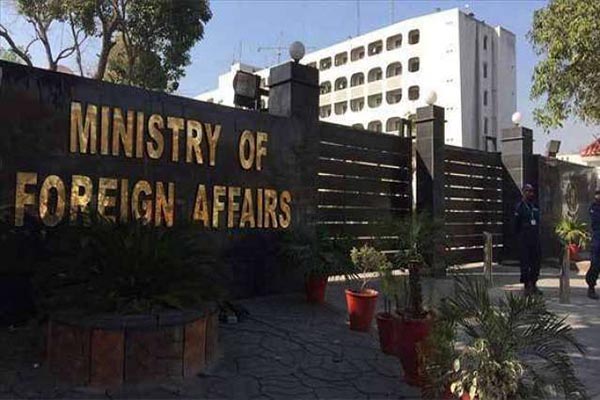
File photo
In weekly briefing, spokesperson claims Islamabad has fully complied with all of the watchdog’s conditions and hopes to be whitelisted
Pakistan has fully complied with all the conditions imposed on it by the Paris-based Financial Action Task Force (FATF), the Foreign Office said on Friday, adding that “politicization by some countries” remains a problem that can hamper its removal from the watchdog’s grey list.
“In the context of FATF, we have faithfully complied with and completed all technical requirements and hope that the outcome would be in the positive direction,” spokesperson Asim Iftikhar told a weekly press briefing. However, he noted, while Pakistan did not publicly comment on the terror financing watchdog’s processes, issues persisted that could hamper the country’s whitelisting. “There are issues of politicization by some countries, and that remains a problem,” he said.
The FATF’s working group is set to meet in Paris from Feb. 21-March 4, during which it would consider Pakistan’s status on the grey-list or the list of “jurisdictions under increased monitoring.” Initially, Pakistan’s action plan comprised 27 items, of which 26 had been addressed by October 2021. However, last year, the FATF expanded the action plan by seven items, with Islamabad claiming it has now completed 30 of the 34 actions required.
Samjhauta Express
Marking the 15th anniversary of the Samjhauta Express train bombing, Iftikhar said India’s charge d’affaires had been summoned to the Foreign Office to convey Islamabad’s protest over Delhi’s failure to punish the terrorists who perpetrated the assault. He said the Indian envoy had been told Pakistan was alarmed that the Hindutva extremism and “saffron terror” that had provoked the bombing had intensified under the government of Prime Minister Narendra Modi.
“The government of India is advised to put an end to state patronage of terrorism and bring to trial the terrorists behind the Samjhauta Express blasts. Pakistan also calls upon India to renounce the use of terrorism as an instrument of state policy, and faithfully comply with its obligations under international legal regime governing terrorism,” he added.
The 2007 Samjhauta Express bombing killed 68 passengers, including 44 Pakistan nationals, with the accused being acquitted by Indian courts despite publicly confessing to the attack. “India’s continuing failure to provide justice to the victims of this horrendous terror attack is a reconfirmation of the culture of impunity that the perpetrators of terrorist attacks enjoy in India,” said the spokesperson. “The reality of today’s India is awash with injustice, inequality, and unabashed rampant state-sponsored terrorism,” he added.
Russia visit
The Foreign Office also confirmed that Prime Minister Imran Khan would travel to Russia on an official visit at the invitation of President Vladimir Putin next week. He said an official itinerary would be shared at a later stage.
Khan’s visit to Russia is the first visit to the European state by a Pakistani head of state in 23 years. Observers say it marks an ongoing effort by both Islamabad and Moscow to enter into a new era of cooperation, adding that meetings would likely focus on improving bilateral ties, particularly in the economic and trade sectors. The regional security situation, with an emphasis on Afghanistan, is also likely to be discussed.
Terrorism
To a question on a recent surge in terrorism across Pakistan, particularly in Balochistan, the spokesman said the government was taking all “necessary steps” to counter the terrorist threat from across the border, as well as its “sponsors” like India. “There is a track record of terrorists getting support from abroad and we are fully aware of that and we will take all necessary steps to bring this cross-border terrorism to a stop,” he said, adding that Islamabad was also engaged with the Taliban government to ensure they fulfilled their pledge to ensure their soil was not used for terror attacks in Pakistan.
On an official visit to Islamabad by Iranian Interior Minister Ahmad Vahidi earlier this week, the spokesman said it was part of an ongoing “very constructive and fruitful dialogue and engagement of Pakistan with Iran.”
